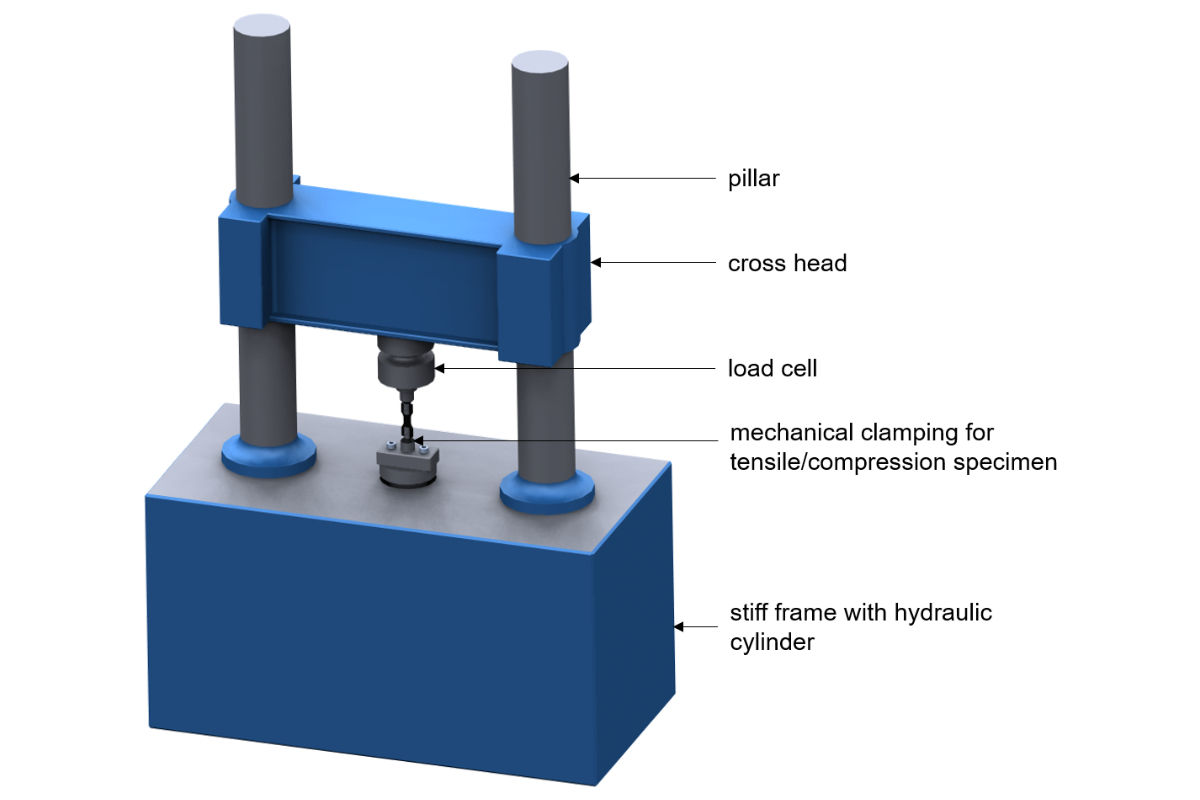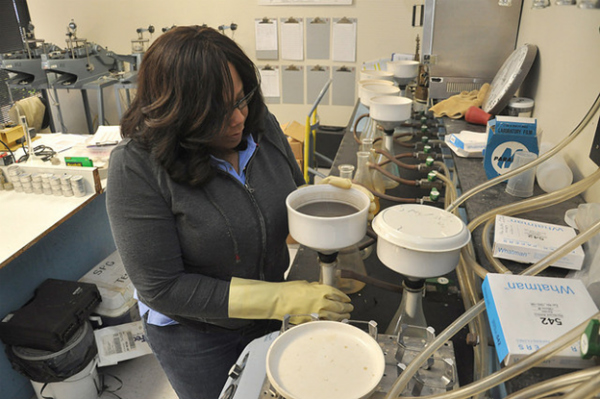Uncover the Potential: Materials Test Lab Insights for Success
Wiki Article
Accuracy Screening of Products for Strength and Toughness
Precision screening of materials for stamina and sturdiness plays a crucial duty in different industries, including production, building, and design. This procedure involves subjecting different materials to strenuous analyses to determine their ability to hold up against external forces and maintain their stability with time.Worldwide of materials screening, precision is paramount. Designers and researchers rely on trustworthy and exact information to make enlightened choices about material choice, design optimization, and item performance. By utilizing sophisticated testing techniques and cutting edge devices, specialists can assess the strength and sturdiness of a broad range of products, such as metals, compounds, polymers, and porcelains.
This introduction will certainly supply insights right into the relevance of accuracy testing, the kinds of products generally based on screening, the crucial specifications for strength evaluation, and the strategies made use of for longevity analysis. It will also highlight the applications and advantages of carrying out precision screening in numerous markets.
Significance of Precision Screening
Accuracy screening is a crucial action in assessing the stamina and toughness of products, providing exact and reliable data for notified decision-making. The top quality and performance of products play an essential duty in making sure the safety and long life of items and structures when it comes to manufacturing and construction industries. Consequently, performing precision testing is of utmost importance to establish whether the materials satisfy the required requirements and requirements.By subjecting products to rigorous testing engineers, procedures and producers can evaluate their mechanical residential properties, such as tensile toughness, firmness, and influence resistance. This details allows them to guarantee that the materials can stand up to used forces and ecological conditions without failure or deterioration gradually. In addition, accuracy screening assists recognize any kind of possible issues or weak points in the materials, enabling producers to make required renovations or alterations to improve performance and dependability.
Moreover, precision screening offers objective and quantifiable information that can be made use of to make and compare various products informed decisions about their suitability for details applications. When selecting products for essential components or structures where failure might have serious consequences., this info is specifically useful.
Kinds of Products Subjected to Testing
Numerous products are subjected to screening for toughness and resilience. This testing is essential to make certain that the materials can stand up to the needs of their desired applications and to establish their expected life-span. The kinds of materials based on testing vary and consist of steels, polymers, porcelains, composites, and construction products.Metals, such as steel and light weight aluminum, are frequently tested for their tensile stamina, solidity, and resistance to rust. materials test lab. These examinations help identify their viability for usage in structural applications, machinery, and numerous industrial processes

Ceramic products, such as porcelain and ceramic floor tiles, are evaluated for their compressive strength, warmth resistance, and longevity. These examinations guarantee that ceramics can withstand harsh settings and high temperatures, making them suitable for applications in the building and construction, electric, and aerospace industries.
Compounds, which are materials made from a combination of different components, go through different tests to assess their mechanical buildings, such as effect, stiffness, and toughness resistance. Composite materials are commonly utilized in markets such as aerospace, automobile, and sports devices manufacturing.
Construction products, including asphalt, concrete, and wood, undergo testing to establish their load-bearing ability, resilience, and resistance to weathering. These tests are essential in guaranteeing the safety and long life of structures, roadways, and bridges.
Key Specifications for Toughness Evaluation
One of the crucial specifications for stamina evaluation is the tensile toughness, which determines a product's ability to resist pulling forces without deforming or breaking. One more essential parameter is the compressive stamina, which assesses a product's resistance to squashing or being squeezed together. By reviewing these essential specifications, designers and researchers can precisely analyze the strength and durability of materials, allowing them to make enlightened choices in various sectors such as aerospace, automotive, building, and manufacturing.

Methods for Resilience Analysis
Durability evaluation techniques are essential for examining the lasting performance and dependability of products. These methods are critical in identifying the capacity of materials to endure numerous environmental problems and mechanical stress and anxieties over web link extended time periods. One typically utilized strategy is sped up aging, which involves subjecting products to sped up ecological conditions such as high temperature levels, humidity, and UV radiation. This allows scientists to simulate the results of long-lasting exposure in a shorter duration, enabling them to examine product destruction and anticipate its performance in time.One more method is cyclic screening, which entails subjecting materials to repeated loading and discharging cycles. This aids assess the product's fatigue resistance and its capacity to endure repeated stress and anxiety without failing. By evaluating the stress-strain action of the product throughout cyclic screening, scientists can identify prospective weak factors and review the product's toughness.
Furthermore, non-destructive testing methods such as ultrasonic screening and infrared thermography can be used to assess the internal integrity and find any kind of defects or damage in the product. These strategies offer valuable info concerning the product's resilience without creating any damages to it.
Applications and Benefits of Precision Testing
Accuracy testing plays an important role in evaluating the strength and resilience of products, allowing designers and researchers to get accurate and trusted data for examining their performance. The applications of accuracy screening are considerable and can be located across numerous markets, including aerospace, auto, building and construction, and production.One of the vital benefits of accuracy testing is its ability to recognize prospective weaknesses or imperfections in products. By subjecting materials to regulated and extensive screening, any type of vulnerabilities or problems can be found before they bring about catastrophic failings. This enables suppliers to make necessary enhancements or changes to boost the general quality and toughness of their products.
Precision testing also assists in figuring out the optimal style and composition of products. By evaluating various variations and arrangements, engineers can recognize the most appropriate products for particular applications. This brings about enhanced performance, performance, and cost-effectiveness in various sectors.
Additionally, precision screening offers useful data for the growth and enhancement of products and manufacturing procedures. materials test lab. It enables researchers to get a much deeper understanding of material behavior under different conditions, causing the growth of brand-new products with boosted durability, strength, and performance characteristics
Conclusion
In conclusion, precision testing plays an important function in examining the toughness and sturdiness Check Out Your URL of materials. By subjecting various kinds of products to extensive testing, essential parameters for toughness analysis can click this site be determined. Furthermore, techniques for durability analysis give useful insights into the efficiency and life expectancy of materials. This knowledge enables industries to make informed decisions and guarantees the growth of trustworthy and long-lasting products.Precision testing is an important action in reviewing the strength and longevity of materials, giving reputable and exact data for educated decision-making.Various materials are subjected to screening for strength and sturdiness. The kinds of materials subjected to testing are varied and include metals, polymers, porcelains, compounds, and construction products.
By examining the stress-strain response of the material during cyclic testing, researchers can determine prospective weak factors and review the product's durability.
In verdict, accuracy screening plays a critical role in assessing the stamina and longevity of products.
Report this wiki page